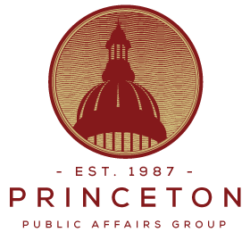News from Trenton: October 2018

MAAC Quarterly Meeting
A significant portion of the meeting was devoted to a presentation providing an update on the New Jersey FamilyCare Behavioral Health program, including an update on behavioral health integration and office based opioid treatment services. The presentation was given by Roxanne Kennedy, the Director of Behavioral Health Management for the New Jersey FamilyCare program. Ms. Kennedy began her presentation with explaining that as of October 1, 2018, the New Jersey FamilyCare program, through managed care plans, will be providing behavioral health services currently covered under Managed Long-Term Services and Supports (MLTSS) to beneficiaries in MLTSS, Fully Integrated Dual Eligible Special Needs Plan (FIDE-SNP), and the Division of Developmental Disabilities (DDD). These services include outpatient mental health services and substance use disorder benefits. The presentation explained that services rendered for substance use disorder are held to American Society of Addiction Medicine (ASAM) standards.
The presentation highlighted that, effective October 1, 2018, all admissions to general acute care hospitals, including to a hospital’s psychiatric unit, will be the responsibility of New Jersey’s Medicaid Managed Care Organizations (MCOs). However, this expansion of MCO services does not include State or County run hospitals.
The presentation also explained that through the Substance Use Disorder Waiver, New Jersey’s Division of Medical Assistance and Health Services (DMAHS), continues to work towards providing a full continuum of benefits. So far under the Waiver, New Jersey has increased access to Long-Term and Short-Term Residential Care and non-hospital-based withdrawal management (WM).
The final aspect of the presentation introduced the MAAC to DMAHS’s newly proposed New Jersey Medication Assisted Treatment (MATrx) and Office Based Addiction Treatment (OBAT) Model. The Model would allow for addiction-based treatments and services to become Medicaid reimbursable and is based on frameworks currently implemented in Vermont and Virginia. The Model consists of several different types of providers with various specialties to treat substance use disorder. The potential providers include Federally-Qualified Health Centers (FQHCs), Certified Community Behavioral Health Clinics (CCBHCs) and newly established Centers for Excellence. The primary purpose of these providers would be to serve as resources for their community, provide on-site training to other health care providers, and mentor individuals struggling with addiction. The MATrx Model will draw a portion of its funding from Governor Phil Murphy’s (D) Fiscal Year 2019 Budget, which appropriated $100 million to help tackle the State’s opioid epidemic. DMAHS’s proposed timeline for the MATrx Model includes several phases and aims for full implementation by July 2019.
Access to Services for Youth with Autism
On July 7, 2015, the Center for Medicare and Medicaid Services (CMS) released guidance requiring States to provide Autism Spectrum Disorder (ASD) services, meaning that every State is now required to furnish all medically necessary services to children with Autism. Traditionally, the New Jersey FamilyCare program has not covered services for youth with Autism. In response to the guidelines, the New Jersey FamilyCare program has launched the ASD Pilot Program, which will provide youth and their families access to evidence-based information, supports for a child’s functional development, and a strong focus on holistic and integrated approach to help children with Autism.
The MAAC explained that in response to the guidelines, they have formed an Autism Executive Planning Committee, which is working towards developing a comprehensive benefit package for the program. Additionally, the MAAC anticipates Medicaid publishing a notice outlining the required program services in mid-November, with a target for an effective date on the rules in January 2019.
NJ FamilyCare
Currently, the NJ FamilyCare program covers approximately 19.4% of New Jersey’s population, with approximately 1,749,743 citizens enrolled in the program. This represents a 5,000 increase in the program’s enrollment since September 2017.
Additionally, the MAAC acknowledged that New Jersey’s original Delivery System Reform Incentive Payment Program (DSRIP) was approved by the Center for Medicare and Medicaid in July 2012 under the 1115 (a) Waiver. The program was extended for three years in 2017, and currently, there are over 46 participating hospitals. The next iteration of the program, the DSRIP Sustain and Transform Program will be launched in July 2020. To that end, DMAHS has submitted an executive summary of the DSRIP Sustain and Transform Program to CMS for approval earlier this month.
Managed Long Term Services and Supports (MLTSS)
As of June 2018, the MLTSS program has enrolled 56,228 people under the Long-Term Care Recipients designation. The Division continues to reinforce their desire to transition treatment services to home and community settings and was happy to report that 50.2% of all enrollees are receiving managed long-term services under Home and Community Based (HCBS) waivers. When the program first began, only 29% of enrollees received care under HCBS waivers. Furthermore, since the implementation of the MLTSS program in July 2014, the number of participants receiving care in nursing homes has decreased by 1,300.
The Division concluded with noting that the Fee-for-Service population has steadily declined since July 2014 with total program enrollment now at 10,470 individuals.
NJ FamilyCare Data Dashboards
The MAAC noted that the New Jersey FamilyCare Data Dashboards were officially launched on September 12, 2018 and can be accessed by the public at www.njfamilycare.org. They noted that the intent of the Dashboards was to bring greater transparency to the State’s Medicaid program. To that end, all New Jersey FamilyCare data and enrollment statistics have now been made available online.
Additionally, New Jersey’s FamilyCare program has begun implementing the next batch of dashboards, which will include data and statistics on Healthcare Effectiveness Data and Information Sets (HEDIS) and other information related to the State’s MCO contracts.
Adjournment
The meeting adjourned with MAAC announcing the next meeting will occur on January 16, 2019.



